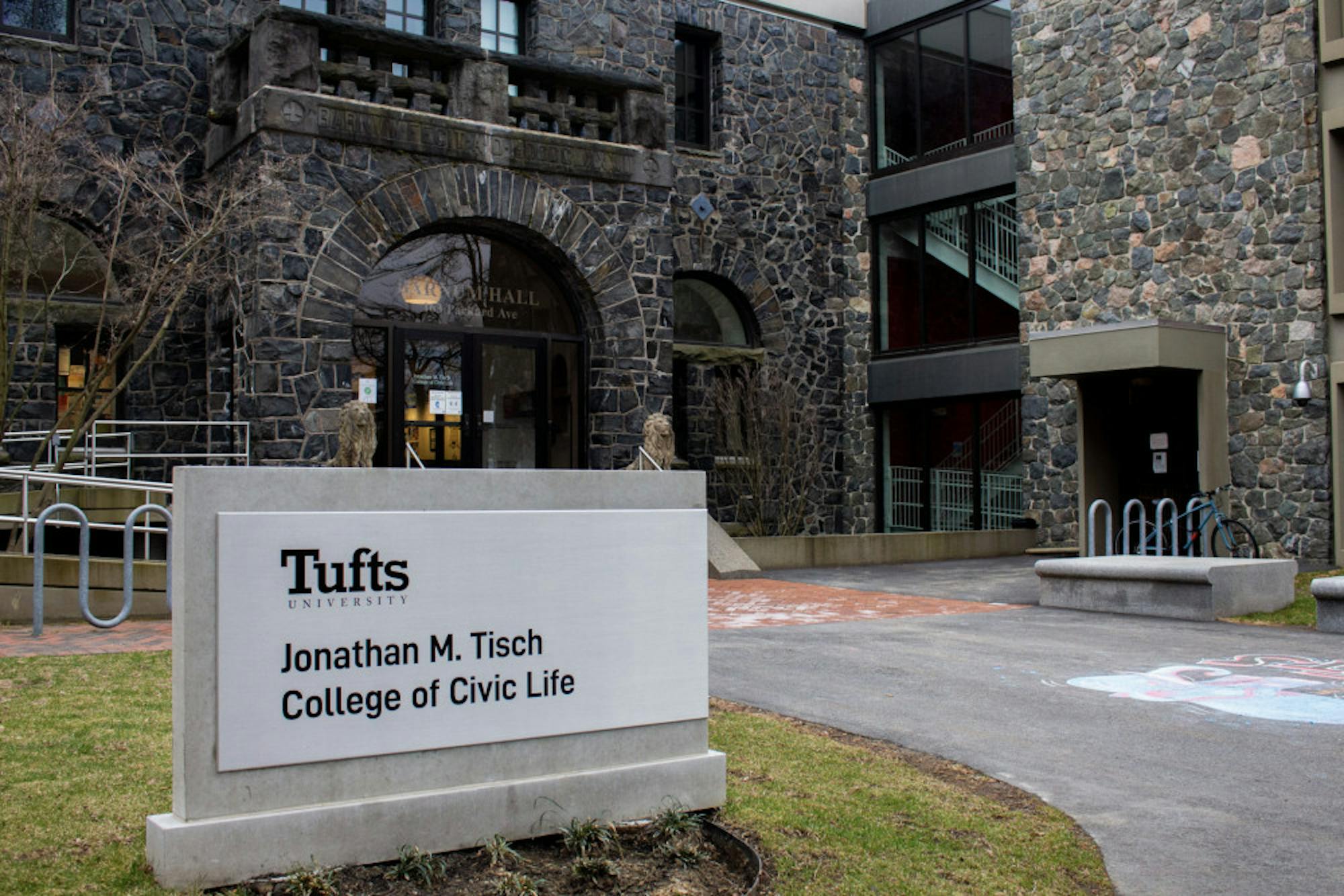A grant from the Arthur Vining Davis Foundations (AVDF) will fund the creation of a new track in the civic studies major, an interdisciplinary program housed in the Jonathan M. Tisch College of Civic Life, that focuses on the intersection of religion and civic engagement.
In addition to a six-course sequence within the major, the AVDF grant will also support a cohort of “student interfaith ambassadors” and a Resident Fellow to help facilitate civic and religious life on campus.
Peter Levine, associate dean of academic affairs and Lincoln Filene professor of citizenship and public affairs, explained that Tufts University applied for one of AVDF’s competitive grants in the Interfaith Leadership and Religious Literacy program and proposed the launch of an interfaith civic studies track.
“The idea of interfaith civic studies came from us, and AVDF decided that it was worthy and that it fit their priorities,” Levine wrote in an email to the Daily.
Levine noted that Tufts already offers courses that examine the connections between faith and civic life, but he believes that more offerings exploring the meaning of civic engagement in a religiously diverse world are necessary at Tufts and beyond.
“A student who is interested in how religion or faith relates to civic life certainly has many good courses to pick from already," Levinesaid. "However, we see a need—not only at Tufts, but everywhere—for more courses specifically about civic action in a religiously pluralist world.”
Brian Hatcher, Packard Chair of Theology in the Department of Religion, seconded Levine’s observation and suggested that Tufts has strengths in the proposed concentration.
“Speaking from within the [Department] of Religion, I am confident there are a number of existing courses that could potentially contribute to the planned program,” Hatcher wrote in an email to the Daily. “There are intersections around secularism, race, politics, nationalism, communalism, inter-religious communication/exchange, gender, law, etc.”
Both Levine and Hatcher noted that new courses will be developed as a result of the grant and expressed enthusiasm about how they will further bolster the program of study.
The current Civic Studies program supports a civic studies major as well as two minors — entrepreneurship for social impact and peace and justice studies. Within the civic studies major, students can also choose to opt into a peace and justice studies track, which shares a similar curriculum with the PJS minor.
Levine provided some details on what the interfaith civic studies track would look like.
“I would imagine that some courses will focus on how to be effective and responsible in a religiously diverse world, while others may look at the content of religious traditions and how they have interacted, or at the relationship between faith and politics," Levine said.
The Rev. Elyse Nelson Winger, university chaplain, explained that the student interfaith ambassadors will be a religiously diverse group of upperclassmen who are interested in the role that religion plays in civil society.
“The Ambassadors are a religiously, spiritually and philosophically diverse group of juniors and seniors who are active in many cultural, spiritual, advocacy, and arts organizations on campus; are majoring in a wide range of disciplines; and who are really interested in living questions together such as: 'What are the roles of religious communities in civil society? What is the place of faith in public deliberation and work for social justice? How do religious and non-religious communities and individuals work together for the common good?'" Nelson Winger wrote in an email to the Daily.
She noted that the cohort is together reading “See No Stranger: A Memoir and Manifesto of Revolutionary Love” (2020) by Valarie Kaur. Kaur is an activist and filmmaker who will deliver the Russell Lecture on Spiritual Life, which is partially funded by the grant, in spring 2022.
Nelson Winger shared that the application for the ambassadorship was posted on Handshake last semester and seven students were selected after a competitive process.
She also explained that the Resident Fellow will lead interdisciplinary and interfaith discussions about civic life on campus, and that the search process for this Fellow, who may be a scholar of religion, clergy or recent Ph.D., will begin this fall.
Nelson Winger conveyed her anticipation of the new initiatives funded by the AVDF grant, which will enable further collaboration between the Chaplaincy and the intellectual and civic communities on campus.
“Our chaplains will engage in reflection and discussion throughout the development of the new interfaith track, which will include both curricular and co-curricular opportunities for community engagement, service, and dialogue,” Nelson Winger said. “Chaplains bring diverse experiences and expertise as scholar-practitioners and spiritual leaders to this conversation, and I am excited to see how we will each learn, grow, and contribute throughout this process.”






